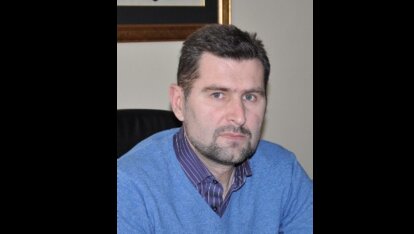Bosnia and Herzegovina: Religions and Cultures in Dialogue
Assessing critically the role that organised religion played during the bloody breakup of Yugoslavia – not only in mobilising the various ethnic groups and rallying behind their ethno-religious political elites, but also in instigating violence and gross human rights violations – remains an unfinished chapter in the recent history of the region.
While political leaders were accused of war crimes, the leaders of religious communities remained shielded from persecution and even criticism. From being an ally at the beginning of these nations’ revival, the religious organisations have since mainly become obstacles to the development of healthy liberal democracies in the region. Issues like the rights of sexual minorities, gender equality, and separation of church and state are gradually becoming tremendously problematic for the fragile democracies in the Western Balkans due to strong opposition by religious organisations. In general, the role of religious communities in the events of the last twenty years has never been properly addressed while at the same time, their role has become increasingly controversial with regard to equality and individual rights.
The issue of Bosnian Muslims remains equally controversial. Historically, they represent a link between the Islamic world and Europe and this potential has hardly been utilized so far. Europe, where right-wing extremism in some countries is influential and even mainstream, needs a communication channel to the increasingly alienated Muslims living in Europe. Bosnian Muslims could definitely represent that link.
It is for this reason that the Friedrich Naumann Foundation for Freedom has worked actively in addressing the issues of freedom and religions. In 2012, there were four events of different kinds that dealt with sensitive topics such as the role of religion in society, the financing of religious organisations from the budget, and the de-secularisation of the public domain.

Emir Kovacevic, Member of the Interreligious Council in Bosnia and Herzegovina and an alumnus of the Foundation’s “Promoting Tolerance” programme, gave us an interview that addressed some of the issues mentioned above.
1. Quite an effort has been made to establish inter-religious cooperation. These confidence-building mechanisms have now been in place for a number of years. How would you assess these efforts so far?
Inter-religious cooperation within the framework of the Inter-religious Council – IRC (Medjureligijsko Vijece – MRV) is improving and the scope of activities conducted within this framework is expanding. Among other things, the activities have now been brought down to the local level. Four communities have already instituted this local level inter-religious cooperation. In Orasje, Brcko, Bijeljina and Gorazde, we are working on capacity building so local religious leaders can apply for and conduct their own projects. These community-level efforts are formally a part of the IRC and are endorsed and supported by the highest level religious authorities within each community. In spring, we plan to expand these efforts to include an additional four cities: Zenica, Doboj, Banja Luka and Livno.
2. In your opinion, what is the crucial problem between ethno-national and religious identity in Bosnia and Herzegovina?
In Bosnia and Herzegovina, religious and ethno-national identities largely overlap. The correspondence between being a Bosniak and a Muslim, a Serb and an Orthodox believer, and a Croat and a Catholic is quite high and tensions easily spill over from one arena into another. When we face the inter-ethnic political crisis, it can easily have a detrimental effect on inter-religious relations and vice-versa. Therefore, the efforts to defuse inter-ethnic tensions should be on a par with efforts to foster inter-religious dialogue and cooperation.
3. How would you assess the current trends in Bosnian society with regard to religion? Is Bosnia still de-secularising?
The current trends tell us that religious communities adapt to the democratic processes in their country. The last elections showed that there was no significant interference from religious groups in the election campaign. We are familiar with the decision by the leaders of both the Islamic community (Rijasat) and the Catholic Church (Vrhbosna) to request that religious officials under their authority not publicly support any particular political party. Of course in practice, there are certain relations between some religious groups and political parties but I think that the situation is much better than before and that there is a positive trend here.
4. Can Bosnian society survive without becoming a secular society?
Bosnia and Herzegovina is a secular state as it is defined in the Law on Freedom of Religion. This law was adopted at the initiative of the Inter-Religious Council and there is no inclination in any religious community to change this.
5. And finally, what is happening with Bosnian Muslims, given the complicated political situation in the country? What are they supposed to do?
Bosnian Muslims need to work to develop good relations with the peoples and countries of Europe and thereby ask for support for the integration of Bosnia and Herzegovina into the EU.
Interview originally published in November 2012